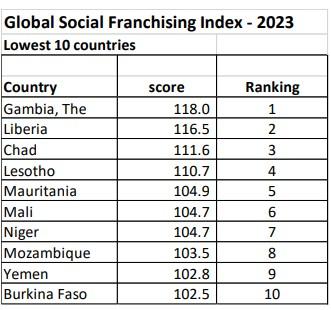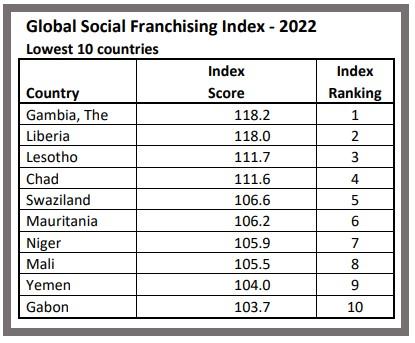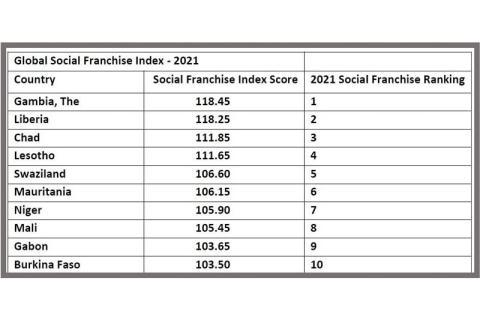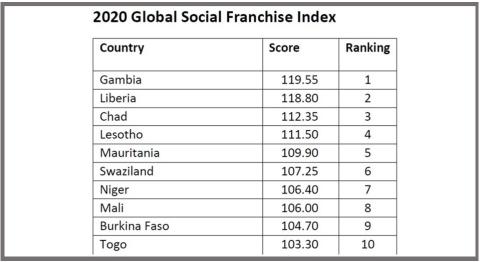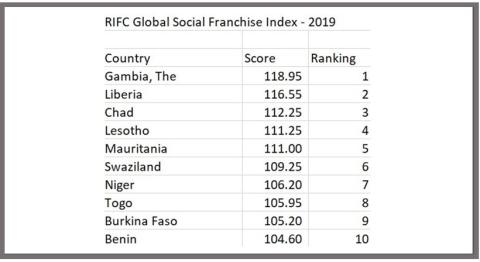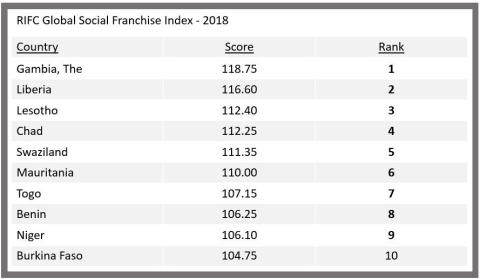The RIFC Global Social Franchise IndexTM ranks 131 countries according to the impacts social entrepreneurship and social franchising can have on the well-being of their citizens. This annual index incorporates metrics that include citizen health conditions, education levels, income, population size, as well as the riskiness of operating in that country.
The rationale behind this annual index is that the lower the well-being of the citizens (as measured by the United Nation’s Human Development Index) and the larger the size of the population, the more impactful social entrepreneurship and social franchising can be. The lower the risks of operating in a given country, the more likely these business models can be successful. Risks taken into account in this index include political, economic, legal and regulatory risks, as well as geographic distance and cultural distance.
